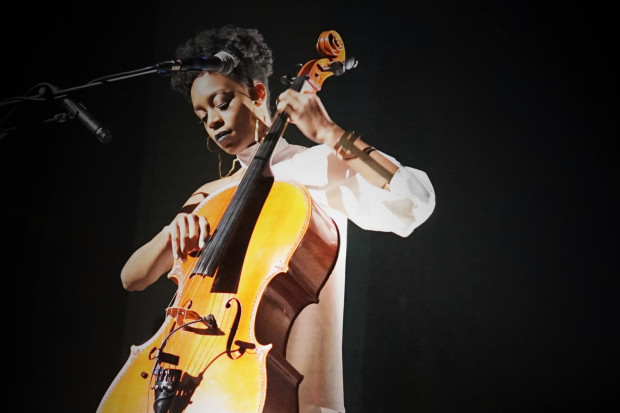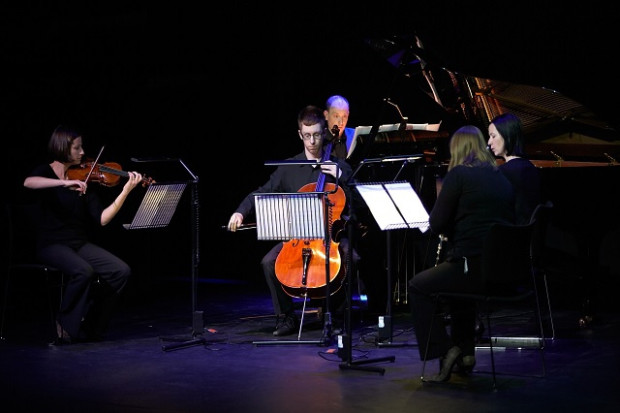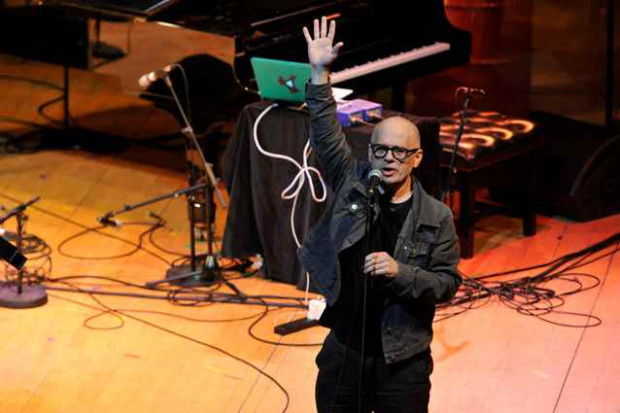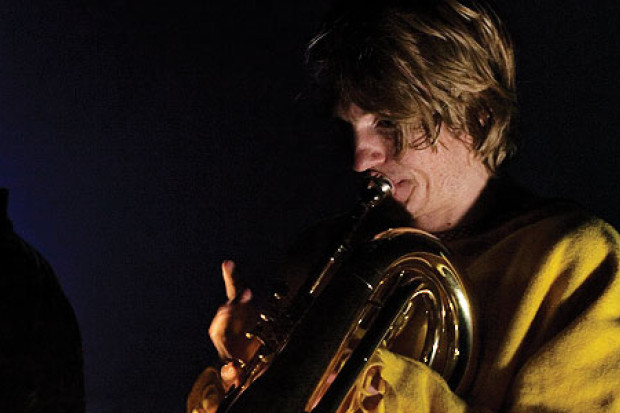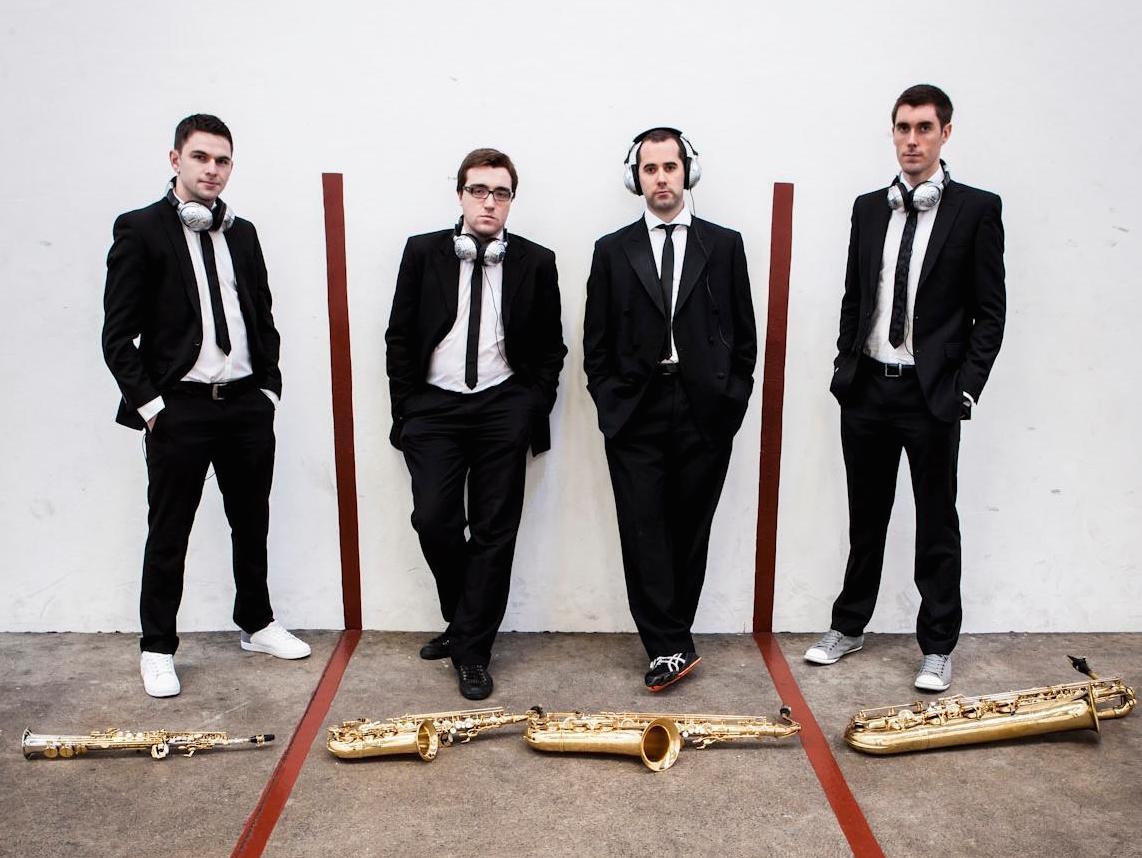
Chatham Saxophone Quartet – a new release on the RTÉ Lyric FM label.
A Visibility Mission: The RTÉ Lyric FM Record Label
RTÉ Lyric FM, the Irish national broadcaster’s music and arts radio station launched in 1999, began releasing music on its CD label over a decade ago. To date, its catalogue features over forty titles. I’ve spent the last month with the most recent six, released between spring 2014 and summer of this year.
The six albums offer a pretty neat snapshot of Irish classical music-making: three portrait albums featuring orchestral music by three established figures (Donnacha Dennehy, Kevin Volans and Kevin O’Connell) and three albums devoted to three (relatively) young ensembles (Hibernian Muse, Chatham Saxophone Quartet, New Dublin Voices) performing music across an impressive chronological spread.
When considered like this – as a sampling – these records give a strong sense of the healthy hybridism, eclecticism, or pluralism, that pervades Irish musical culture. I use the word ‘healthy’ because, for the most part, it seems to sit rather lightly, in other words, without the heavy hand of conceptualism.
The three composers featured on the portrait albums are reconciling thrillingly diverse elements in their work: Donnacha Dennehy assimilates New York post-minimalism, European spectralism, and a certain urban Dublin sensibility with bittersweet Beckettian results. With Kevin Volans, you get a Lisztian spirit of adventure, the supple rhythmic relationships of African folk music, the structuralism of Karlheinz Stockhausen, and the sensuousness of Morton Feldman, all synthesised into something completely original. Kevin O’Connell resolutely forges his own path out of early-twentieth-century Germanic modernism, Scandinavian folk music, and the symphonies of Jean Sibelius.
The Hibernian Muse – a multi-national group founded by Irish Baroque cellist Eimear Reidy and featuring Netherlands-based flautist Emma Zoe Elkinson and Finnish harpsichordist Anna Savelainen – locates an intersection between the melodies of Irish traditional music and the soundworld of the high Baroque.
The Chatham Saxophone Quartet have a repertoire list that spans Olivier Messiaen, Radiohead, Astor Piazzolla, Anton von Webern, and a certain strand of Irish jazz. The New Dublin Voices album traces relationships between such saccharine standards as ‘Danny Boy’ and C.V. Stanford’s The Blue Bird and the more angular choral idioms of Stephen Gardner and Eibhlís Farrell in a way that is illuminating rather than forced.
The more I listened to the RTÉ National Symphony Orchestra’s recording of four substantial orchestral works by Kevin O’Connell (b. 1958), the more my admiration for the composer increased. I remained unable to connect to the surface of the music, but I discovered a kind of nourishment that seemed to transcend aesthetics. For example, I began to hear beyond the motive-based language of the album’s opener, North, and perceived the compositional intelligence at play in the pacing of musical thoughts via the deft deployment of orchestral colour. This is the kind of reward that’s only made possible by focussed repeated listening, I think.
The music of Donnacha Dennehy (b. 1970) and Kevin Volans (b. 1949) featured on their respective orchestral portrait albums was immediately captivating. Aside from the opportunity to revel in statement works like Crane (for orchestra) and Hive (for orchestra and chorus), a particular joy of the Dennehy record lay in hearing flickering foreshadowings of Dennehy’s later music in O, a score from 2002 that I had a never heard before.
A previous recording of Kevin Volans’ first piano concerto exists, but the version that appears on his Lyric FM orchestral compilation, performed by pianist Isabelle O’Connell and the RTÉ NSO under Gavin Maloney, highlighted new aspects of the work for me – both in terms of a new intensity of harmonic colour, and in the sense of a premonition of Volans’ later two-piano masterpiece, Cicada. The Volans album also offered me the pleasure of revisiting his Symphony: Daar kom die Alibama which I had only once heard in live performance. It’s a work so ravishing in its airborne swirls and moments of heartbeat minimalism that it can’t help but awaken a new excitement about the symphony orchestra as compositional vehicle.
The Hibernian Muse present melodies of the Irish bardic tradition – in particular those of Turlough O’Carolan (1670–1738) – dressed in the clothing of the high Baroque and early Classical period. (The melody instrument and basso continuo arrangements they perform are taken from The Hibernian Muse; a collection of Irish Airs including the most Favorite Compositions of Carolan the celebrated Irish Bard, which was published in London around 1770.) Listening to, for example, ’Aileen Aroon’ (a.k.a. ‘Eileanóir a Rún’) as it would have been performed at a high society gathering in Dublin or London in the late eighteenth century is fascinating, not just as an exercise in historical musicology but also as a new perspective on the relationship between Irish traditional music and the classical tradition of continental Europe.
Jonathan Nangle’s beautifully spare and sweet-sour version of ‘The Coventry Carol’ as it appears on New Dublin Voices’ Music from Ireland seems to really access the intense despair at the core of the sixteenth-century lyrics. And the Chatham Saxophone Quartet’s recording of Ian Wilson’s Heaven Lay Close II is persuasive in its combination of the flow and flutter of North Indian tabla patterns (performed on bodhrán) with the buoyancy and versatility of the contemporary saxophone quartet.
The curatorial voice
As I returned again and again to the three orchestral albums in particular, I began to think about the daunting economic realities of documenting orchestral music in the contemporary digital music climate. Who else can make this kind of work visible if not the national broadcaster?
It’s absolutely correct that RTÉ are using the resources at their disposal to create a life for this music beyond the odd performance and broadcast. More than just a life, actually, since the very act of making a recording implies an attempt to fix a version of the work in time – to rise to the challenge of posterity. It’s one thing to prepare a work for a concert performance or live broadcast, it’s an entirely different beast to undertake to record that work. The amount of preparation required is much greater, but perhaps more importantly, the understanding required is more nuanced, more multi-dimensional. I have seldom heard the RTÉ NSO sound as good as they do on these records. This is what should happen when there’s a commitment to making these kinds of documents: the bar is raised, and hopefully there are many, multi-faceted positive knock-on effects.
Eoin Brady, the RTÉ producer behind the Lyric FM CD label, is very aware that, for the most part, when RTÉ broadcasts a new Irish composition, you hear it and then, very often, it’s gone. ‘This transience’, he says, ‘is at the heart of why we decided to set up a record label for classical music in Ireland – to create and promote a fixed, commercially available, quality record of how much incredible music exists in this country.’
It seems apposite that the RTÉ Lyric FM label would focus on a ‘visibility mission’ rather than pushing a solely commercial angle. And, speaking as someone heavily invested in the Irish classical music scene, it is very energising to see the results of this promotion – for example, The Guardian’s rave review of Kevin Volans’ Lyric FM disc and the feature segment afforded to Donnacha Dennehy’s album on BBC Radio 3’s marvellous Saturday morning programme CD Review.
But I wonder if the label could perhaps achieve even greater consistent visibility, particularly in Ireland. For example, the label doesn’t have its own dedicated social media platforms. If it did, it might create the feeling that it is taking part in an ongoing conversation about music and culture – perhaps even shaping this conversation to some degree, and building relationships in the broader classical music community. And could these records have even more impact in Irish musical life, or even just more impact on RTÉ Orchestras, Quartet and Choirs programming?
Yes, RTÉ NSO premiered a new work by Kevin O’Connell at the Galway International Arts Festival on 18 July. Yes, Donnacha Dennehy was Artistic Director of New Music Dublin last year – although his music did not feature. Yes, Kevin Volans was a featured composer in the RTÉ NSO lunchtime Horizons series three years ago. But what if the release of their respective portrait albums had been the centrepieces of co-ordinated, RTÉ-curated celebrations of these composers’ music – a weekend of concerts and broadcasts, for example?
I also wonder about a document of Linda Buckley’s recent stint as Lyric FM’s composer-in-residence. Her tenure lasted nearly three years, but none of the commissions she completed during that time has yet featured on a Lyric release. The important word in all of this is ‘celebration’ – the sense of a curatorial voice saying clearly ‘this is important; we are proud of this’.
As the RTÉ Lyric FM label continues its important mission, I think it’s this voice, this sense of curatorship, that I would like to see more of – in terms of what appears on the label itself, but more so in terms of the conversation that surrounds it, and the way in which the releases are integrated into the national broadcaster’s larger artistic agenda when it comes to classical music.
Recordings discussed in this article:
Kevin O’Connell: North/Four Orchestral Pieces/Symphony – RTÉ National Symphony Orchestra/Gavin Maloney, conductor – Composers of Ireland Series Volume 8
Donnacha Dennehy: Crane/O/The Vandal/Hive – RTÉ National Symphony Orchestra/Chamber Choir Ireland/Gavin Maloney, conductor – Composers of Ireland Series Volume 9
Kevin Volans: Trio Concerto/Symphony: Daar kom die Alibama/Concerto for Piano and Winds – RTÉ National Symphony Orchestra/Gavin Maloney and Alan Buibayev, conductors – Composers of Ireland Volume 10
The Hibernian Muse: Irish Airs and the Music of Carolan on Period Instruments – Emma Elkinson (transverse flute), Eimear Reidy (Baroque cello), Anna Saveleinen (harpsichord)
New Dublin Voices: Music from Ireland – Bernie Sherlock, conductor
Chatham Saxophone Quartet: New Irish Music
For more on the RTÉ Lyric FM record label, visit http://www.rte.ie/lyricfm/articles/releases/
Published on 21 July 2015
Garrett Sholdice is a composer and a director of the record label and music production company Ergodos.












